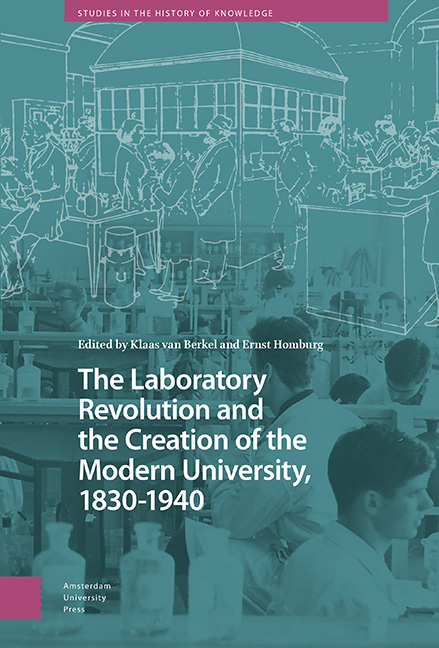2 - Origins and Spread of the ‘Giessen Model’ in University Science
Published online by Cambridge University Press: 29 November 2023
Summary
Abstract
In seeking to understand the rise of Justus Liebig’s model for research and teaching, three interrelated and overlapping factors intrinsic to his specialty of organic chemistry have not been sufficiently brought into the explanatory field: the discovery of isomers, the novel practice of using ‘paper tools’, and the ‘Kaliapparat’ method of organic analysis. The existence of these three interacting factors made it a uniquely positioned context within which to create the practices that eventually were associated with all modern research universities.
Keywords: Liebig, paper tools, research groups, team research, Giessen
Introduction
The chemical teaching-research laboratory that Justus Liebig established in the small German university town of Giessen was long viewed by many as the fount of a powerful innovation that transformed both pedagogy and research practice in universities around the world. This simple mythology, centred in field-internal factors and in an implicit and outmoded ‘great man’ theory of history, has been fruitfully unpacked, repacked, and attacked during the last generation. What continues to require explanation is how the research/teaching model that is associated with Liebig’s name really did get off the ground; it is also necessary to understand more clearly the causes of the remarkable rise of German chemistry (and, more broadly, German science) from its undistinguished condition around 1820 to what many have considered world supremacy by the third quarter of the nineteenth century.
Aside from some scattered early contributions, the re-thinking began in 1960 with contributions from historical sociologists Joseph Ben-David and Avraham Zloczower, who argued that institutional dynamics and career perceptions in the decentralized German academic marketplace could provide an adequate understanding of the take-off of German university science in the middle decades of the nineteenth century. Then, between 1971 and 1982, R. Steven Turner published a series of path-breaking articles that demonstrated how German universities transformed themselves from conservative teaching-oriented corporative bodies into dynamic research-oriented state institutions by wedding neo-humanist ideology to a powerful new research ethic, and both to a kind of experiential pedagogical philosophy that favoured laboratory practica. Turner’s approach was distinct from, but not inconsistent with, that of Ben David and Zloczower; his work broadened the explanatory field by bringing in state interests as well as institutional and cultural factors.
- Type
- Chapter
- Information
- Publisher: Amsterdam University PressPrint publication year: 2023



